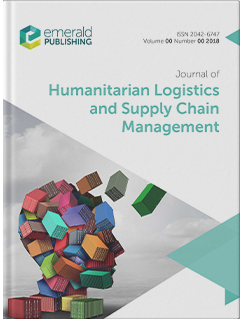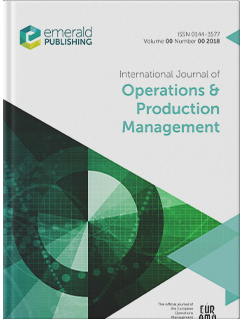
International Journal of Operations & Production Management
Before you start
For queries relating to the status of your paper pre decision, please contact the Editor or Journal Editorial Office. For queries post acceptance, please contact the Supplier Project Manager. These details can be found in the Editorial Team section.
Author responsibilities
Our goal is to provide you with a professional and courteous experience at each stage of the review and publication process. There are also some responsibilities that sit with you as the author. Our expectation is that you will:
- Respond swiftly to any queries during the publication process.
- Be accountable for all aspects of your work. This includes investigating and resolving any questions about accuracy or research integrity
- Treat communications between you and the journal editor as confidential until an editorial decision has been made.
- Read about our research ethics for authorship. These state that you must:
- Include anyone who has made a substantial and meaningful contribution to the submission (anyone else involved in the paper should be listed in the acknowledgements).
- Exclude anyone who hasn’t contributed to the paper, or who has chosen not to be associated with the research.
- In accordance with COPE’s position statement on AI tools, Large Language Models cannot be credited with authorship as they are incapable of conceptualising a research design without human direction and cannot be accountable for the integrity, originality, and validity of the published work.
- If your article involves human participants, you must ensure you have considered whether or not you require ethical approval for your research, and include this information as part of your submission. Find out more about informed consent.
Research and publishing ethics
Our editors and employees work hard to ensure the content we publish is ethically sound. To help us achieve that goal, we closely follow the advice laid out in the guidelines and flowcharts on the COPE (Committee on Publication Ethics) website.
We have also developed our research and publishing ethics guidelines. If you haven’t already read these, we urge you to do so – they will help you avoid the most common publishing ethics issues.
A few key points:
- Any manuscript you submit to this journal should be original. That means it should not have been published before in its current, or similar, form. Exceptions to this rule are outlined in our pre-print and conference paper policies. If any substantial element of your paper has been previously published, you need to declare this to the journal editor upon submission. Please note, the journal editor may use Crossref Similarity Check to check on the originality of submissions received. This service compares submissions against a database of 49 million works from 800 scholarly publishers.
- Your work should not have been submitted elsewhere and should not be under consideration by any other publication.
- If you have a conflict of interest, you must declare it upon submission; this allows the editor to decide how they would like to proceed. Read about conflict of interest in our research and publishing ethics guidelines.
- By submitting your work to Emerald, you are guaranteeing that the work is not in infringement of any existing copyright.
Use of Artificial Intelligence
IJOPM, together with other leading operations and supply chain management (OSCM) journals, strives for the highest standards of editorial integrity and transparency. Please see the journals’ shared editoral policies on the use of AI: https://sites.google.com/view/policy-on-ai?usp=sharing
General Policies for Authors
When authors submit their work to our journal, they are accountable for the originality, validity, and integrity of the content that is submitted. If AI tools are used in the research projects, authors must carry out such usage responsibly, attend to each journal’s ethical standards for research, and abide with the journal’s authorship guidelines.
- The journals represented in this collaboration support the responsible use of AI tools that respect high standards of data security, confidentiality, and copyright protection in cases such as the following, albeit with specific expectations regarding the disclosure, justification and verification of such use (with associated implications for author responsibility regarding the verification of any output generated):
- Language improvement
- Literature classification
- Data collection (but not to generate synthetic data)
- Coding assistance (e.g. of large corpuses of sourced data and rich media)
- Data analysis (provided that the output is replicable and interpretable by humans)
The journal does not permit the use of AI in the creation or manipulation of images, figures, or other forms of accessible empirical data for use in our publications. The term “images and figures, or other forms” includes pictures, charts, data tables, medical imagery, snippets of images, computer code, and formulas; as well as film, audio, filed reports, or other media. The term “manipulation” includes augmenting, concealing, moving, removing, or introducing a specific feature within an image or figure.
Policies in case of use of AI
1. Disclose and document the use of AI. Apart from grammatical and copy-editing applications, disclosure should be made on the journal submission page, the methods section, as well as the acknowledgment section if one is used. Authors are to disclose the following information: Full name of the tool along with the version number; how and when it was deployed. Authors must acknowledge the limitations of language models in the manuscript, including the potential for bias, errors, and gaps in knowledge. Authors should cite their AI use as outlined within the Chicago Manual of style.
2. Justify the use of AI. Apart from grammatical and copy-editing applications, in any instance in which AI is applied, the manuscript should explain the reasons for its use of AI. This justification not only needs to explain why alternative methods were insufficient but also the precautions taken by the author team to avoid potential biases, errors, hallucinations, etc. As a basic ground rule, AI cannot be permitted to generate substantive content for articles. This includes the prohibition of AI as a source of generalized overviews, ideas and concepts, motivational statements, theories and arguments, references to related literature and discussions.
3. Verify and take responsibility for the AI output. The points below apply to all uses of AI, including grammatical and copy-editing applications.
- Generative AI tools should not be listed as author(s) as these tools cannot undertake responsibility for the content produced nor can consent/sign on for copyright and licensing agreements. In accordance with COPE’s position statement on Authorship and AI tools—these tools cannot fulfil the role of, nor be listed as, an author of an article.
- Authors are to verify the accuracy, validity, and appropriateness of the content and any citations generated by language models and correct any errors or inconsistencies. Manual subsample coding, for example, should be conducted to check against the risk of hallucinations by a larger-scale AI application of this type. Similarly, AI may not be used as a fully black-boxed stand-alone analytical process. It may also not be used to directly generate summaries, interpretations or claims, or in general to craft findings. Findings from benchmark established methods must be provided for validation.
- Authors are to be conscious of the potential for plagiarism that AI-assisted language improvement can generate. Since AI draws on substantial text from other sources, multi-word edits recommended by grammar / copy-editing applications can be considered de facto plagiarism, even if unintended. Check the original sources to be sure you are not plagiarizing someone else’s work.
- Applying the technology should be done with human oversight and control and all work should be reviewed and edited carefully, because AI can generate authoritative-sounding output that can be incorrect, incomplete, or biased. The authors are ultimately responsible and accountable for the contents of the work.
General Policies for Editors and Peer Reviewers
The journals strive for the highest standards of editorial integrity and transparency. Due to many concerns, including confidentiality, editors and reviewers must not upload files, images or information from unpublished manuscripts into Generative AI tools. Failure to comply with this policy may infringe upon the rightsholder’s intellectual property.
Reviewers and editors must not use AI tools to generate review reports.
Third party copyright permissions
Prior to article submission, you need to ensure you’ve applied for, and received, written permission to use any material in your manuscript that has been created by a third party. Please note, we are unable to publish any article that still has permissions pending. The rights we require are:
- Non-exclusive rights to reproduce the material in the article or book chapter.
- Print and electronic rights.
- Worldwide English-language rights.
- To use the material for the life of the work. That means there should be no time restrictions on its re-use e.g. a one-year licence.
We are a member of the International Association of Scientific, Technical, and Medical Publishers (STM) and participate in the STM permissions guidelines, a reciprocal free exchange of material with other STM publishers. In some cases, this may mean that you don’t need permission to re-use content. If so, please highlight this at the submission stage.
Please take a few moments to read our guide to publishing permissions to ensure you have met all the requirements, so that we can process your submission without delay.
Open access submissions and information
All our journals currently offer two open access (OA) publishing paths; gold open access and green open access.
If you would like to, or are required to, make the branded publisher PDF (also known as the version of record) freely available immediately upon publication, you can select the gold open access route once your paper is accepted.
If you’ve chosen to publish gold open access, this is the point you will be asked to pay the APC (article processing charge). This varies per journal and can be found on our APC price list or on the editorial system at the point of submission. Your article will be published with a Creative Commons CC BY 4.0 user licence, which outlines how readers can reuse your work.
Alternatively, if you would like to, or are required to, publish open access but your funding doesn’t cover the cost of the APC, you can choose the green open access, or self-archiving, route. As soon as your article is published, you can make the author accepted manuscript (the version accepted for publication) openly available, free from payment and embargo periods.
You can find out more about our open access routes, our APCs and waivers and read our FAQs on our open research page.
Transparency and Openness Promotion (TOP) guidelines
We are a signatory of the Transparency and Openness Promotion (TOP) Guidelines, a framework that supports the reproducibility of research through the adoption of transparent research practices. That means we encourage you to:
- Cite and fully reference all data, program code, and other methods in your article.
- Include persistent identifiers, such as a Digital Object Identifier (DOI), in references for datasets and program codes. Persistent identifiers ensure future access to unique published digital objects, such as a piece of text or datasets. Persistent identifiers are assigned to datasets by digital archives, such as institutional repositories and partners in the Data Preservation Alliance for the Social Sciences (Data-PASS).
- Follow appropriate international and national procedures with respect to data protection, rights to privacy and other ethical considerations, whenever you cite data. For further guidance please refer to our research and publishing ethics guidelines. For an example on how to cite datasets, please refer to the references section below.
Prepare your submission
Manuscript support services
We are pleased to partner with Editage, a platform that connects you with relevant experts in language support, translation, editing, visuals, consulting, and more. After you’ve agreed a fee, they will work with you to enhance your manuscript and get it submission-ready.
This is an optional service for authors who feel they need a little extra support. It does not guarantee your work will be accepted for review or publication.
Manuscript requirements
Before you submit your manuscript, it’s important you read and follow the guidelines below. You will also find some useful tips in our structure your journal submission how-to guide.
|
Format |
Article files should be provided in Microsoft Word format While you are welcome to submit a PDF of the document alongside the Word file, PDFs alone are not acceptable. LaTeX files can also be used but only if an accompanying PDF document is provided. Acceptable figure file types are listed further below. |
|
Article length / word count |
Articles should be up to a maximum of 12000 words in length. This includes all text, for example, the structured abstract, references, all text in tables, and figures and appendices. Please allow 280 words for each figure or table. The Impact Pathways are limited to 3,000 words |
|
Article title |
A concisely worded title should be provided. |
|
Author details |
The names of all contributing authors should be added to the ScholarOne submission; please list them in the order in which you’d like them to be published. Each contributing author will need their own ScholarOne author account, from which we will extract the following details:
In multi-authored papers, it’s important that ALL authors that have made a significant contribution to the paper are listed. Those who have provided support but have not contributed to the research should be featured in an acknowledgements section. You should never include people who have not contributed to the paper or who don’t want to be associated with the research. Read about our research ethics for authorship. |
|
Biographies and acknowledgements |
If you want to include these items, save them in a separate Microsoft Word document and upload the file with your submission. Where they are included, a brief professional biography of not more than 100 words should be supplied for each named author. |
|
Research funding |
Your article must reference all sources of external research funding in the acknowledgements section. You should describe the role of the funder or financial sponsor in the entire research process, from study design to submission. |
|
Structured abstract |
All submissions must include a structured abstract, following the format outlined below. These four sub-headings and their accompanying explanations must always be included:
The following three sub-headings are optional and can be included, if applicable:
The maximum length of your abstract should be 250 words in total, including keywords and article classification (see the sections below). |
|
Keywords |
Your submission should include up to 12 appropriate and short keywords that capture the principal topics of the paper. Our Creating an SEO-friendly manuscript how to guide contains some practical guidance on choosing search-engine friendly keywords. Please note, while we will always try to use the keywords you’ve suggested, the in-house editorial team may replace some of them with matching terms to ensure consistency across publications and improve your article’s visibility. |
|
Article classification |
During the submission process, you will be asked to select a type for your paper; the options are listed below. If you don’t see an exact match, please choose the best fit:
You will also be asked to select a category for your paper. The options for this are listed below. If you don’t see an exact match, please choose the best fit: Research paper. Reports on any type of research undertaken by the author(s), including:
Viewpoint. Covers any paper where content is dependent on the author's opinion and interpretation. This includes journalistic and magazine-style pieces. Technical paper. Describes and evaluates technical products, processes or services. Conceptual paper. Focuses on developing hypotheses and is usually discursive. Covers philosophical discussions and comparative studies of other authors’ work and thinking. Case study. Describes actual interventions or experiences within organizations. It can be subjective and doesn’t generally report on research. Also covers a description of a legal case or a hypothetical case study used as a teaching exercise. Literature review. This category should only be used if the main purpose of the paper is to annotate and/or critique the literature in a particular field. It could be a selective bibliography providing advice on information sources, or the paper may aim to cover the main contributors to the development of a topic and explore their different views. General review. Provides an overview or historical examination of some concept, technique or phenomenon. Papers are likely to be more descriptive or instructional (‘how to’ papers) than discursive. |
|
Headings |
Headings must be concise, with a clear indication of the required hierarchy. |
|
Notes/endnotes |
Notes or endnotes should only be used if absolutely necessary. They should be identified in the text by consecutive numbers enclosed in square brackets. These numbers should then be listed, and explained, at the end of the article. |
|
Figures |
All figures (charts, diagrams, line drawings, webpages/screenshots, and photographic images) should be submitted electronically. Both colour and black and white files are accepted.
|
|
Tables |
Tables should be typed and submitted in a separate file to the main body of the article. The position of each table should be clearly labelled in the main body of the article with corresponding labels clearly shown in the table file. Tables should be numbered consecutively in Roman numerals (e.g. I, II, etc.). |
|
Supplementary files |
Where tables, figures, appendices, and other additional content are supplementary to the article but not critical to the reader’s understanding of it, you can choose to host these supplementary files alongside your article on Insight, Emerald’s content hosting platform, or on an institutional or personal repository. All supplementary material must be submitted prior to acceptance. If you choose to host your supplementary files on Insight, you must submit these as separate files alongside your article. Files should be clearly labelled in such a way that makes it clear they are supplementary; Emerald recommends that the file name is descriptive and that it follows the format ‘Supplementary_material_appendix_1’ or ‘Supplementary tables’. All supplementary material must be mentioned at the appropriate moment in the main text of the article, there is no need to include the content of the file but only the file name. A link to the supplementary material will be added to the article during production, and the material will be made available alongside the main text of the article at the point of EarlyCite publication. Please note that Emerald will not make any changes to the material; it will not be copyedited, typeset, and authors will not receive proofs. Emerald therefore strongly recommends that you style all supplementary material ahead of acceptance of the article. Emerald Insight can host the following file types and extensions:
If you choose to use an institutional or personal repository, you should ensure that the supplementary material is hosted on the repository ahead of submission, and then include a link only to the repository within the article. It is the responsibility of the submitting author to ensure that the material is free to access and that it remains permanently available. Please note that extensive supplementary material may be subject to peer review; this is at the discretion of the journal Editor and dependent on the content of the material (for example, whether including it would support the reviewer making a decision on the article during the peer review process). |
|
References |
All references in your manuscript must be formatted using one of the recognised Harvard styles. You are welcome to use the Harvard style Emerald has adopted – we’ve provided a detailed guide below. Want to use a different Harvard style? That’s fine, our typesetters will make any necessary changes to your manuscript if it is accepted. Please ensure you check all your citations for completeness, accuracy and consistency. Emerald’s Harvard referencing style References to other publications in your text should be written as follows:
A few other style points. These apply to both the main body of text and your final list of references.
At the end of your paper, please supply a reference list in alphabetical order using the style guidelines below. Where a DOI is available, this should be included at the end of the reference. |
|
For books |
Surname, initials (year), title of book, publisher, place of publication. e.g. Harrow, R. (2005), No Place to Hide, Simon & Schuster, New York, NY. |
|
For book chapters |
Surname, initials (year), "chapter title", editor's surname, initials (Ed.), title of book, publisher, place of publication, page numbers. e.g. Calabrese, F.A. (2005), "The early pathways: theory to practice – a continuum", Stankosky, M. (Ed.), Creating the Discipline of Knowledge Management, Elsevier, New York, NY, pp.15-20. |
|
For journals |
Surname, initials (year), "title of article", journal name, volume issue, page numbers. e.g. Capizzi, M.T. and Ferguson, R. (2005), "Loyalty trends for the twenty-first century", Journal of Consumer Marketing, Vol. 22 No. 2, pp.72-80. |
|
For published |
Surname, initials (year of publication), "title of paper", in editor’s surname, initials (Ed.), title of published proceeding which may include place and date(s) held, publisher, place of publication, page numbers. e.g. Wilde, S. and Cox, C. (2008), “Principal factors contributing to the competitiveness of tourism destinations at varying stages of development”, in Richardson, S., Fredline, L., Patiar A., & Ternel, M. (Ed.s), CAUTHE 2008: Where the 'bloody hell' are we?, Griffith University, Gold Coast, Qld, pp.115-118. |
|
For unpublished |
Surname, initials (year), "title of paper", paper presented at [name of conference], [date of conference], [place of conference], available at: URL if freely available on the internet (accessed date). e.g. Aumueller, D. (2005), "Semantic authoring and retrieval within a wiki", paper presented at the European Semantic Web Conference (ESWC), 29 May-1 June, Heraklion, Crete, available at: http://dbs.uni-leipzig.de/file/aumueller05wiksar.pdf (accessed 20 February 2007). |
|
For working papers |
Surname, initials (year), "title of article", working paper [number if available], institution or organization, place of organization, date. e.g. Moizer, P. (2003), "How published academic research can inform policy decisions: the case of mandatory rotation of audit appointments", working paper, Leeds University Business School, University of Leeds, Leeds, 28 March. |
|
For encyclopaedia entries |
Title of encyclopaedia (year), "title of entry", volume, edition, title of encyclopaedia, publisher, place of publication, page numbers. e.g. Encyclopaedia Britannica (1926), "Psychology of culture contact", Vol. 1, 13th ed., Encyclopaedia Britannica, London and New York, NY, pp.765-771. (for authored entries, please refer to book chapter guidelines above) |
|
For newspaper |
Surname, initials (year), "article title", newspaper, date, page numbers. e.g. Smith, A. (2008), "Money for old rope", Daily News, 21 January, pp.1, 3-4. |
|
For newspaper |
Newspaper (year), "article title", date, page numbers. e.g. Daily News (2008), "Small change", 2 February, p.7. |
|
For archival or other unpublished sources |
Surname, initials (year), "title of document", unpublished manuscript, collection name, inventory record, name of archive, location of archive. e.g. Litman, S. (1902), "Mechanism & Technique of Commerce", unpublished manuscript, Simon Litman Papers, Record series 9/5/29 Box 3, University of Illinois Archives, Urbana-Champaign, IL. |
|
For electronic sources |
If available online, the full URL should be supplied at the end of the reference, as well as the date that the resource was accessed. Surname, initials (year), “title of electronic source”, available at: persistent URL (accessed date month year). e.g. Weida, S. and Stolley, K. (2013), “Developing strong thesis statements”, available at: https://owl.english.purdue.edu/owl/resource/588/1/ (accessed 20 June 2018) Standalone URLs, i.e. those without an author or date, should be included either inside parentheses within the main text, or preferably set as a note (Roman numeral within square brackets within text followed by the full URL address at the end of the paper). |
|
For data |
Surname, initials (year), title of dataset, name of data repository, available at: persistent URL, (accessed date month year). e.g. Campbell, A. and Kahn, R.L. (2015), American National Election Study, 1948, ICPSR07218-v4, Inter-university Consortium for Political and Social Research (distributor), Ann Arbor, MI, available at: https://doi.org/10.3886/ICPSR07218.v4 (accessed 20 June 2018) |
Submit your manuscript
There are a number of key steps you should follow to ensure a smooth and trouble-free submission.
Double check your manuscript
Before submitting your work, it is your responsibility to check that the manuscript is complete, grammatically correct, and without spelling or typographical errors. A few other important points:
- Give the journal aims and scope a final read. Is your manuscript definitely a good fit? If it isn’t, the editor may decline it without peer review.
- Does your manuscript comply with our research and publishing ethics guidelines?
- Have you cleared any necessary publishing permissions?
- Have you followed all the formatting requirements laid out in these author guidelines?
- Does the manuscript contain any information that might help the reviewer identify you? This could compromise the anonymous peer review process. A few tips:
- If you need to refer to your own work, use wording such as ‘previous research has demonstrated’ not ‘our previous research has demonstrated’.
- If you need to refer to your own, currently unpublished work, don’t include this work in the reference list.
- Any acknowledgments or author biographies should be uploaded as separate files.
- Carry out a final check to ensure that no author names appear anywhere in the manuscript. This includes in figures or captions.
You will find a helpful submission checklist on the website Think.Check.Submit.
The submission process
All manuscripts should be submitted through our editorial system by the corresponding author.
The only way to submit to the journal is through the journal’s ScholarOne site as accessed via the Emerald website, and not by email or through any third-party agent/company, journal representative, or website. Submissions should be done directly by the author(s) through the ScholarOne site and not via a third-party proxy on their behalf.
A separate author account is required for each journal you submit to. If this is your first time submitting to this journal, please choose the Create an account or Register now option in the editorial system. If you already have an Emerald login, you are welcome to reuse the existing username and password here.
Please note, the next time you log into the system, you will be asked for your username. This will be the email address you entered when you set up your account.
Don't forget to add your ORCiD ID during the submission process. It will be embedded in your published article, along with a link to the ORCiD registry allowing others to easily match you with your work.
Don’t have one yet? It only takes a few moments to register for a free ORCiD identifier.
Visit the ScholarOne support centre for further help and guidance.
What you can expect next
You will receive an automated email from the journal editor, confirming your successful submission. It will provide you with a manuscript number, which will be used in all future correspondence about your submission. If you have any reason to suspect the confirmation email you receive might be fraudulent, please contact our Rights team on [email protected]
Manuscript transfer service
Emerald’s manuscript transfer service takes the pain out of the submission process if your manuscript doesn’t fit your initial journal choice. Our team of expert Editors from participating journals work together to identify alternative journals that better align with your research, ensuring your work finds the ideal publication home it deserves. Our dedicated team is committed to supporting authors like you in finding the right home for your research.
If a journal is participating in the manuscript transfer program, the Editor has the option to recommend your paper for transfer. If a transfer decision is made by the Editor, you will receive an email with the details of the recommended journal and the option to accept or reject the transfer. It’s always down to you as the author to decide if you’d like to accept. If you do accept, your paper and any reviewer reports will automatically be transferred to the recommended journals. Authors will then confirm resubmissions in the new journal’s ScholarOne system.
Our Manuscript Transfer Service page has more information on the process.
Post submission
Review and decision process
Each submission is checked by the editor. At this stage, they may choose to decline or unsubmit your manuscript if it doesn’t fit the journal aims and scope, or they feel the language/manuscript quality is too low.
If they think it might be suitable for the publication, they will send it to at least two independent referees for double anonymous peer review. Once these reviewers have provided their feedback, the editor may decide to accept your manuscript, request minor or major revisions, or decline your work.
This journal offers an article transfer service. If the editor decides to decline your manuscript, either before or after peer review, they may offer to transfer it to a more relevant Emerald journal in this field. If you accept, your ScholarOne author account, and the accounts of your co-authors, will automatically transfer to the new journal, along with your manuscript and any accompanying peer review reports. However, you will still need to log in to ScholarOne to complete the submission process using your existing username and password. While accepting a transfer does not guarantee the receiving journal will publish your work, an editor will only suggest a transfer if they feel your article is a good fit with the new title.
While all journals work to different timescales, the goal is that the editor will inform you of their first decision within 60 days.
During this period, we will send you automated updates on the progress of your manuscript via our submission system, or you can log in to check on the current status of your paper. Each time we contact you, we will quote the manuscript number you were given at the point of submission. If you receive an email that does not match these criteria, it could be fraudulent and we recommend you email [email protected].
If your submission is accepted
Open access
Once your paper is accepted, you will have the opportunity to indicate whether you would like to publish your paper via the gold open access route.
If you’ve chosen to publish gold open access, this is the point you will be asked to pay the APC (article processing charge). This varies per journal and can be found on our APC price list or on the editorial system at the point of submission. Your article will be published with a Creative Commons CC BY 4.0 user licence, which outlines how readers can reuse your work.
Copyright
All accepted authors are sent an email with a link to a licence form. This should be checked for accuracy, for example whether contact and affiliation details are up to date and your name is spelled correctly, and then returned to us electronically. If there is a reason why you can’t assign copyright to us, you should discuss this with your journal content editor. You will find their contact details on the editorial team section above.
Proofing and typesetting
Once we have received your completed licence form, the article will pass directly into the production process. We will carry out editorial checks, copyediting, and typesetting and then return proofs to you (if you are the corresponding author) for your review. This is your opportunity to correct any typographical errors, grammatical errors or incorrect author details. We can’t accept requests to rewrite texts at this stage.
When the page proofs are finalised, the fully typeset and proofed version of record is published online. This is referred to as the EarlyCite version. While an EarlyCite article has yet to be assigned to a volume or issue, it does have a digital object identifier (DOI) and is fully citable. It will be compiled into an issue according to the journal’s issue schedule, with papers being added by chronological date of publication.
How to share your paper
Visit our author rights page to find out how you can reuse and share your work.
To find tips on increasing the visibility of your published paper, read about how to promote your work.
Correcting inaccuracies in your published paper
Sometimes errors are made during the research, writing and publishing processes. When these issues arise, we have the option of withdrawing the paper or introducing a correction notice. Find out more about our article withdrawal and correction policies.
Need to make a change to the author list? See our frequently asked questions (FAQs) below.
Frequently Asked Questions
The only time we will ever ask you for money to publish in an Emerald journal is if you have chosen to publish via the gold open access route. You will be asked to pay an APC (article-processing charge) once your paper has been accepted (unless it is a sponsored open access journal), and never at submission.
At no other time will you be asked to contribute financially towards your article’s publication, processing, or review. If you haven’t chosen gold open access and you receive an email that appears to be from Emerald, the journal, or a third party, asking you for payment to publish, please contact our support team via [email protected].
-
Editors-in-Chief
-
Constantin
Blome
Lancaster University Leipzig - Germany
[email protected] -
Hugo
Lam
University of Liverpool - UK
[email protected] -
Professor
Jens
Roehrich
University of Bath - UK
[email protected] -
Professor
Martin
Schleper
NEOMA Business School - France
[email protected]
-
Constantin
Blome
-
Consulting Editors
-
Cristina
Gimenez
Esade Business School, Universitat Ramon Llull - Spain
-
Bart
MacCarthy
Nottingham University Business School - UK
-
Morgan
Swink
Texas Christian University - USA
-
Chris
Voss
Warwick Business School - UK
-
Cristina
Gimenez
-
Editorial Assistant
-
Byung-Gak
Son
Bayes Business School - UK
[email protected] -
Dr.
Desirée
van Dun
University of Twente - Netherlands
[email protected]
-
Byung-Gak
Son
-
Associate Editors
-
Par
Ahlstrom
Stockholm School of Economics - Sweden
-
Arash
Azadegan
Rutgers University - USA
-
Lydia
Bals
University of Applied Sciences - Germany
-
Paolo
Barbieri
Universita di Bologna - Italy
-
Umit Sezer
Bititci
Edinburgh Business School, Heriot Watt University - UK
-
Steve
Brown
University of Sussex - UK
-
Raffaella
Cagliano
Politecnico di Milano - Italy
-
Sangho
Chae
Warwick Business School - UK
-
Atanu
Chaudhuri
Durham University - UK
-
Lujie
Chen
Xi'an Jiaotong-Liverpool University - People's Republic of China
-
Jing
Dai
University of Nottingham Ningbo, China
-
Pamela
Danese
University of Padova - Italy
-
Scott
Ellis
Georgia Southern University - USA
-
Kai
Foerstl
EBS University of Business and Law - Germany
-
Flavio S.
Fogliatto
Universidade Federal do Rio Grande do Sul - Brazil
-
Jose Arturo
Garza-Reyes
University of Derby, UK
-
Stefan
Gold
University of Kassel - Germany
-
Leopoldo
Gutierrez
University of Granada - Spain
-
Jan
Hartley
Bowling Green State University - USA
-
Alex
Hill
Kingston University - UK
-
Juliana
Hsuan
Copenhagen Business School - Denmark
-
Paul
Humphreys
Ulster University - UK
-
Charbel
Jabbour
NEOMA Business School - France
-
Jayanth
Jayaram
Univerity of Oklahoma - USA
-
Vaidyanathan
Jayaraman
Great Lakes Institute of Management, India - India
-
Jeff
Jia
University of York - UK
-
Mark
Johnson
Warwick Business School - UK
-
David
Johnston
York University - Canada
-
Patrik
Jonsson
Chalmers University of Technology - Sweden
-
Canan
Kocabasoglu Hillmer
Bayes Business School - UK
-
Melanie
Kreye
University of York - UK
-
Hugo K.S.
Lam
University of Liverpool - UK
-
Benn
Lawson
Judge Business School, University of Cambridge - UK
-
Kevin
Linderman
Pennsylvania State University - USA
-
Annachiara
Longoni
ESADE - Spain
-
José
Machuca
University of Seville - Spain
-
Leonardo
Marques
Audencia Business School - France
-
Steven
Melnyk
Michigan State University - USA
-
Carlos
Mena
Portland State University - USA
-
Pietro
Micheli
Warwick Business School - UK
-
Jason
Miller
Michigan State University - USA
-
Sachin
Modi
Wayne State University - USA
-
Maria
Montes Sancho
University Carlos III Madrid - Spain
-
Torbjorn
Netland
ETH Zurich - Switzerland
-
Adegoke
Oke
Arizona State University - USA
-
Jan
Olhager
Lund University - Sweden
-
Guido
Orzes
Free University of Bozen-Bolzano - Italy
-
Thanos
Papadopoulos
The University of Kent - UK
-
Antony
Paulraj
NEOMA Business School - France
-
Daniel
Prajogo
Monash University - Australia
-
Dina
Ribbink
Oregon State University - USA
-
Nick
Rich
Swansea University - UK
-
Sinéad
Roden
Trinity College Dublin - Ireland
-
Jens
Roehrich
University of Bath - UK
-
Sam
Roscoe
University of British Columbia - Canada
-
Martin C.
Schleper
NEOMA Business School - France
-
Andreas
Schroeder
University of Lancaster - UK
-
Stefan
Seuring
University of Kassel, Germany
-
Palie
Smart
University of Bristol - UK
-
Amrik
Sohal
Monash University - Australia
-
Byung-Gak
Son
Bayes Business School - UK
-
Rui
Sousa
Universidade Catolica Portuguesa - Portugal
-
Martin
Spring
University of Lancaster - UK
-
Mark
Stevenson
University of Lancaster - UK
-
Matthias
Thurer
Chemnitz University of Technology - Germany
-
Evelyne
Vanpoucke
Universite Libre de Bruxelles - Belgium
-
Frank
Wiengarten
Esade Business School, Universitat Ramon Llull - Spain
-
Qinghua
Zhu
Shanghai Jiao Tong University, China
-
Dirk Pieter
van Donk
University of Groningen - Netherlands
-
Par
Ahlstrom
-
Social Media Editors
-
Nikolai
Kazantsev
University of Cambridge - UK
-
M. K.
Kim
Kansas State University - USA
-
Andrea
Patrucco
Florida International University, Miami - United States
-
Vinicius Picano
Rodrigues
University of Strathclyde - UK
-
Oznur
Yurt
The Open University - UK
-
Nikolai
Kazantsev
-
Impact Pathways Associate Editors
-
Federico
Caniato
Politecnico di Milano - Italy
-
Gary
Graham
Liverpool John Moores University - UK
-
Federico
Caniato
-
Publisher
-
Joseph
Johnson
Emerald Publishing - UK
[email protected]
-
Joseph
Johnson
-
Journal Editorial Office (For queries related to pre-acceptance)
-
Sonal
Aherkar
Emerald Publishing
[email protected]
-
Sonal
Aherkar
-
Supplier Project Manager (For queries related to post-acceptance)
-
Suryalakshmi
Balakrishnan
Emerald Publishing
[email protected]
-
Suryalakshmi
Balakrishnan
-
Editorial Review Board
-
Muhammad
Abdulrahman
RMIT University, Australia - Australia
-
Jode H
Ablanedo-Rosas
University of Texas at El Paso - USA
-
Dotun
Adebanjo
Greenwich University - UK
-
Kees
Ahaus
Erasmus University Rotterdam - Netherlands
-
Henry
Aigbedo
Oakland University - USA
-
James
Aitken
University of Surrey - UK
-
Henk
Akkermans
Tilburg University - Netherlands
-
Alex
Alblas
Technische Universiteit Eindhoven - Netherlands
-
Anthony
Alexander
University of Sussex - UK
-
Marlene
Amorim
Universidade de Aveiro - Portugal
-
Jannis
Angelis
Royal Institute of Technology - Sweden
-
Daniel
Arias Aranda
University of Granada - Spain
-
Arild
Aspelund
Norwegian University of Science and Technology - Norway
-
Melek
Ates
Sabanci University - Turkey
-
Sunil
Babbar
Florida Atlantic University - USA
-
Kevin
Baird
Macquarie University - Australia
-
James
Baldwin
University of Sheffield - UK
-
Peter
Ball
University of York - UK
-
David
Bamford
University of Huddersfield - UK
-
David
Barnes
University of Westminster - UK
-
Nicola
Bateman
Loughborough University - UK
-
Ahmad
Beltagui
Aston Business School - UK
-
Jors
Benders
KU Leuven - Belgium
-
Lars
Bengtsson
Lund University - Sweden
-
Merce
Bernardo
Universitat de Barcelona - Spain
-
Alison
Bettley
Open University - UK
-
Ran
Bhamra
Royal Holloway University of London - UK
-
M. Khurrum
Bhutta
Ohio University - USA
-
Charles
Blankson
University of North Texas - USA
-
Margareth
Borella
University of Caxias do Sul - Brazil
-
Thomas
Bortolotti
University of Groningen - Netherlands
-
Valerie
Botta-Genoulaz
INSA Lyon - France
-
Michael
Bourlakis
Cranfield School of Management - UK
-
Mike
Bourne
Cranfield School of Management - UK
-
Harry
Bouwman
TU Delft - Netherlands
-
Marcus
Brandenburg
HS Flensburg - Germany
-
Alistair
Brandon-Jones
University of Bath - UK
-
Michael
Braunscheidel
Canisius College - USA
-
Manda
Broekhuis
University of Groningen - Netherlands
-
Manfredi
Bruccoleri
Universita degli Studi di Palermo - Italy
-
Michael
Brusco
Florida State University - USA
-
Nigel
Caldwell
London Metropolitan University - UK
-
Arnaldo
Camuffo
Bocconi University - Italy
-
Maria Carmen
Carnero
University of Castilla-La Mancha - Spain
-
Steven
Carnovale
Rochester Institute of Technology - USA
-
Mehmet
Chakkol
Warwick Business School - UK
-
Subhajit
Chakraborty
Coastal Carolina University - USA
-
Hing Kai
Chan
Nottingham University Business School China, - People's Republic of China
-
Yang
Cheng
Aalborg University - Denmark
-
Chung-Yean
Chiang
Georgia Southern University - USA
-
Andrea
Chiarini
University of Ferrara and MD at Chiarini & Associates - Italy
-
Daniel
Chicksand
University of Birmingham - UK
-
Roberto
Cigolini
Politecnico di Milano - Italy
-
Ferit
Cobanoglu
Adnan Menderes Üniversitesi - Turkey
-
Henrique Luiz
Correa
Rollins College - USA
-
Barry
Cross
Queen's University - Canada
-
Jennifer
Cross
Texas Tech University - USA
-
Samir
Dani
University of Huddersfield - UK
-
Kristen
DeTienne
Brigham Young University - USA
-
Rob
Dekkers
University of Glasgow - UK
-
Krisztina
Demeter
Corvinus University of Budapest - Hungary
-
Angel
Diaz
IE Business School - Spain
-
Kevin
Dooley
Arizona State University - USA
-
Paul
Drake
University of Liverpool - UK
-
Rameshwar
Dubey
Montpellier Business School - France
-
Christian F.
Durach
ESCP Europe Business School - Germany
-
Chris
Ellegaard
Aarhus University - Denmark
-
Aniekan
Essien
University of Bristol - UK
-
Pietro
Evangelista
IRISS-CNR - Italy
-
Reza Zanjirani
Farahani
Rennes School of Business - France
-
Sami
Farooq
Aalborg University - Denmark
-
Max
Finne
Warwick Business School - UK
-
Barbara
Flynn
Indiana University - USA
-
Marco
Formentini
University of Trento - Italy
-
Pauline
Found
University of Buckingham - UK
-
Monica
Franco Santos
Cranfield University - UK
-
Henrik
Franke
ETH Zurich - Switzerland
-
Anna
Fredriksson
Linkoping University - Sweden
-
Jan
Frick
University of Stavanger - Norway
-
Joao
Frota Neto
University of Manchester - UK
-
Wayne
Fu
University of Michigan - USA
-
Charlette
Geffen
U.S. Department of Energy - USA
-
Mark
Goh
NUS Business School - Singapore
-
Ruggero
Golini
University of Bergamo - Italy
-
Rodrigo
Gonzalez
UNICAMP - Brazil
-
Jonathan
Gosling
Cardiff University - UK
-
Richard
Gruner
University of Western Australia - Australia
-
Jury
Gualandris
University of Western Ontario - Canada
-
Manish
Gupta
MNNIT Allahabad - India
-
Leopoldo
Gutierrez
University of Granada - Spain
-
Farooq
Habib
Cranfield University - UK
-
Sara
Hajmohammad
University of Ottawa - Canada
-
Kim
Hald
Copenhagen Business School - Denmark
-
Ari-Pekka
Hameri
Universite de Lausanne - Switzerland
-
Claire
Hannibal
Robert Gordon University - UK
-
Qile (Horace)
He
University of Derby - UK
-
Petri
Helo
University of Vaasa - Finland
-
Linda
Hendry
University of Lancaster - UK
-
Craig
Hill
Clayton State University - USA
-
David
Hollingworth
University of North Dakota - USA
-
Luisa
Huaccho Huatuco
University of York - UK
-
Melanie
Hudson Smith
University of Plymouth - UK
-
Baofeng
Huo
Tianjin University, China
-
Fahian Anisul
Huq
University of Manchester - UK
-
Anas
Iftikhar
University of Lancaster - UK
-
Mark
Jacobs
University of Dayton - USA
-
Peter
Jacobsen
Technical University of Denmark - Denmark
-
Daniel
Jimenez-Jimenez
University of Murcia - Spain
-
Dana
Johnson
Michigan Technological University - USA
-
William
Johnson
Penn State Erie - USA
-
Ashwin
Joshi
York University - Canada
-
Matteo
Kalchschmidt
University of Bergamo - Italy
-
Jas
Kalra
University College London - UK
-
Christer
Karlsson
Copenhagen Business School - Denmark
-
Katri
Kauppi
Aalto University - Finland
-
Aseem
Kinra
University of Bremen - Germany
-
A Michael
Knemeyer
The Ohio State University - USA
-
Siau Ching Lenny
Koh
University of Sheffield - UK
-
Gyöngyi
Kovács
Hanken School of Economics - Finland
-
Murat
Kristal
York University - Canada
-
Thomas
Kristensen
Aalborg University - Denmark
-
Maneesh
Kumar
Cardiff University - UK
-
Niraj
Kumar
University of Essex - UK
-
Nathan
Kunz
University of North Florida - USA
-
Sini
Laari
University of Turku - Finland
-
Sylvain
Landry
HEC Montreal - Canada
-
Sander de
Leeuw
Wageningen University & Research - Netherlands
-
Mike
Lewis
University of Bath - UK
-
Michael
Leyer
University of Rostock - Germany
-
Weihua
Liu
Tianjin University, China
-
Jun
Luo
University of Nottingham Ningbo - People's Republic of China
-
Davide
Luzzini
EADA Business School - Spain
-
Santosh
Mahapatra
Clarkson University - USA
-
Angel
Martinez-Lorente
Universidad Politecnica de Cartagena - Spain
-
Olga
Matthias
Sheffield Hallam University - UK
-
Roger
Maull
University of Exeter Business School - UK
-
Harvey
Maylor
University of Oxford - UK
-
Rodney
McAdam
University of Ulster - UK
-
Christopher
McDermott
Rensselaer Polytechnic Institute - USA
-
Ronan
McIvor
University of Ulster - UK
-
Vahid
Mirzabeiki
Surrey Business School - UK
-
Michael
Naor
Georgetown University - USA
-
Arunachalam (Chalam)
Narayanan
University of North Texas - USA
-
Kulwant
Pawar
University of Nottingham - UK
-
Antti
Peltokorpi
Aalto University - Finland
-
Laura
Phillips
University of Exeter - UK
-
Andrew
Potter
Cardiff University - UK
-
Edmund
Prater
University of Texas at Arlington - USA
-
Madeleine
Pullman
University of Sussex - UK
-
Maciel M.
Queiroz
FGV EAESP - Brazil
-
Chris
Raddats
University of Liverpool - UK
-
Usha
Ramanathan
University of Sharjah - United Arab Emirates
-
Carsten
Reuter
University of Applied Sciences Aschaffenburg - Germany
-
Jorge
Rodríguez
ESPAE Graduate School of Management - Ecuador
-
Pietro
Romano
University of Udine - Italy
-
Tomohiko
Sakao
Linkoping University - Sweden
-
Cristina
Sancha
OBS Business School - Spain
-
Jason
Schloetzer
Georgetown University - USA
-
Christoph G.
Schmidt
ETH Zurich - Switzerland
-
Kostas
Selviaridis
Lancaster University - UK
-
Zahra
Seyedghorban
University of Melbourne - Australia
-
Chwen
Sheu
Kansas State University - USA
-
Guang
Shi
University of Sheffield - UK
-
Peter
Shi
Macquarie University - Australia
-
Yongyi
Shou
Zhejiang University - People's Republic of China
-
Katariina
Silander
Aalto University - Finland
-
Bruno
Silvestre
University of Manitoba - Canada
-
Rhian
Silvestro
Warwick Business School - UK
-
Janet
Smart
University of Oxford - UK
-
Jeffery
Smith
Virginia Commonwealth University - USA
-
Brian
Squire
University of Bristol - UK
-
Jagjit Singh
Srai
University of Cambridge - UK
-
Ravi
Srinivasan
Loyola University Maryland - USA
-
Gregory
Stock
University of Colorado at Colorado Springs - USA
-
Hung-Chung
Su
University of Michigan at Dearborn - USA
-
Tahir Abbas
Syed
University of Manchester - UK
-
Kelsey
Taylor
University of Manitoba - Canada
-
Robert
Van der Meer
University of Strathclyde - UK
-
V.G.
Venkatesh
EM Normandie Business School - France
-
John
Verghese
University of Wisconsin Whitewater - USA
-
Veronica
Villena
Arizona State University - USA
-
Andrea
Vinelli
Universita di Padova, Italy - Italy
-
John
Visich
Bryant University - USA
-
Ivanka
Visnjic
ESADE Business School - Spain
-
Hans
Voordijk
University of Twente - Netherlands
-
Helen
Walker
Cardiff University - UK
-
Chao
Wen
Eastern Illinois University - USA
-
Andreas
Wieland
Copenhagen Business School - Denmark
-
Sharon
Williams
Swansea University - UK
-
David
Wuttke
TUM School of Management - Germany
-
Biao
Yang
University of Sussex - UK
-
Wantao
Yu
University of Roehampton - UK
-
Xin
Zhai
Peking University - People's Republic of China
-
Yuanzhu
Zhan
University of Birmingham - UK
-
Desirée
van Dun
University of Twente - Netherlands
-
Muhammad
Abdulrahman
Citation metrics
13.3
CiteScore 2023
13.3
CiteScore 2023
Further information
CiteScore is a simple way of measuring the citation impact of sources, such as journals.
Calculating the CiteScore is based on the number of citations to documents (articles, reviews, conference papers, book chapters, and data papers) by a journal over four years, divided by the number of the same document types indexed in Scopus and published in those same four years.
For more information and methodology visit the Scopus definition
14.5
CiteScore Tracker 2024
(updated monthly)
14.5
CiteScore Tracker 2024
(updated monthly)
Further information
CiteScore is a simple way of measuring the citation impact of sources, such as journals.
CiteScore Tracker is calculated in the same way as CiteScore, but for the current year rather than previous, complete years.
The CiteScore Tracker calculation is updated every month, as a current indication of a title's performance.
For more information and methodology visit the Scopus definition
7.10
2023 Impact Factor
7.10
2023 Impact Factor
Further information
The Journal Impact Factor is published each year by Clarivate Analytics. It is a measure of the number of times an average paper in a particular journal is cited during the preceding two years.
For more information and methodology see Clarivate Analytics
9.2
5-year Impact Factor (2023)
9.2
5-year Impact Factor (2023)
Further information
A base of five years may be more appropriate for journals in certain fields because the body of citations may not be large enough to make reasonable comparisons, or it may take longer than two years to publish and distribute leading to a longer period before others cite the work.
Actual value is intentionally only displayed for the most recent year. Earlier values are available in the Journal Citation Reports from Clarivate Analytics.
Publication timeline
Time to first decision
43
days
Time to first decision
43
days
Further information
Time to first decision, expressed in days, the "first decision" occurs when the journal’s editorial team reviews the peer reviewers’ comments and recommendations. Based on this feedback, they decide whether to accept, reject, or request revisions for the manuscript.
Data is taken from submissions between 1st June 2023 and 31st May 2024
Acceptance to publication
39
days
Acceptance to publication
39
days
Further information
Acceptance to publication, expressed in days, is the average time between when the journal’s editorial team decide whether to accept, reject, or request revisions for the manuscript and the date of publication in the journal.
Data is taken from the previous 12 months (Last updated July 2024)
Acceptance rate
9
%
Acceptance rate
9
%
Further information
The acceptance rate is a measurement of how many manuscripts a journal accepts for publication compared to the total number of manuscripts submitted expressed as a percentage %
Data is taken from submissions between 1st June 2023 and 31st May 2024.
Usage
Downloads
54621
Articles
Downloads
54621
Articles
Further information
This figure is the total amount of downloads for all articles published early cite in the last 12 months
(Last updated: July 2024)
This journal is abstracted and indexed by
- Australian Business Dean's Council (ABDC) Quality Journal List
- Business Index
- BFI (Denmark)
- Cabell's Dictionary of Publishing Opportunities in Management and Marketing
- Contents pages in Management
- 2016 FNEGE Journals Ranking List (France)
- FMS Journal Rating Guide - B (China)
- INSPEC
- International Abstracts in Operations Research
- SSCI: Social Science Citation Index
- ReadCube Discover
- Research Alert®
- Scopus
- VHB-JOURQUAL 3
- The Publication Forum (Finland)
- Qualis (Brazil)
- VHB Publication Media Rating 2024 (Germany) - Level B
Reviewer information
Peer review process
This journal engages in a double-anonymous peer review process, which strives to match the expertise of a reviewer with the submitted manuscript. Reviews are completed with evidence of thoughtful engagement with the manuscript, provide constructive feedback, and add value to the overall knowledge and information presented in the manuscript.
Mission
The mission of the peer review process is to achieve excellence and rigour in scholarly publications and research.
Vision
Our vision is to give voice to professionals in the subject area who contribute unique and diverse scholarly perspectives to the field.
Values
The journal values diverse perspectives from the field and reviewers who provide critical, constructive, and respectful feedback to authors. Reviewers come from a variety of organizations, careers, and backgrounds from around the world.
Ethics
All invitations to review, abstracts, manuscripts, and reviews should be kept confidential. Reviewers must not share their review or information about the review process with anyone without the agreement of the editors and authors involved, even after publication. This also applies to other reviewers’ “comments to author” which are shared with you on decision.

Resources to guide you through the review process
Discover practical tips and guidance on all aspects of peer review in our reviewers' section. See how being a reviewer could benefit your career, and discover what's involved in shaping a review.
Calls for papers
Labour exploitation: OSCM research to combat modern slavery, human trafficking and precarious work
International Journal of Operations & Production Management
Introduction The issue of labour exploitation – including its most extreme forms of modern slavery and human trafficking – has moved up the political agenda over the last decade. This is reflected by global normative targets such as th...
News
Thank you to the 2023 Reviewers of International Journal of Operations & Production Management
The publishing and editorial teams would like to thank the following, for their invaluable service as 2023 reviewers for this journal. We are very grateful for the contributions made. With their help, the journal has been able to publish such high...
IJOPM - Call for Special Issue Proposals
Researchers interested in submitting a proposal for a special issue in the International Journal of Operations and Production Management are kindly requested to send their submission to the Editorial Assistant Professor Martin C. Schleper...
IJOPM Diversity, Equity, and Inclusion Workshop
We are excited to invite researchers in Operations and Supply Chain Management and related fields to our upcoming IJOPM special issue online workshop focusing on Diversity, Equity, and Inclusion (DEI). Join us, as Professo...
Thank you to the 2022 Reviewers of International Journal of Operations & Production Management
The publishing and editorial teams would like to thank the following, for their invaluable service as 2022 reviewers for this journal. We are very grateful for the contributions made. With their help, the journal has been able to publish such high...
IJOPM Newsletter and Podcast
International Journal of Operations & Production Management (IJOPM) is proud to announce the commencement of an IJOPM newsletter and an IJOPM podcast. The newsletter is available to subscribe to on ...
Webinar: “The Beyond Industry 4.0 – Integrating Lean, Digital Technologies and People”
The Call for Papers about “The Beyond Industry 4.0 – Integrating Lean, Digital Technologies and People” at the IJOPM, is open until April 30th. For additional information about the Call for Papers, check the following webinar presented ...
Thank you to the 2021 Reviewers of International Journal of Operations & Production Management
The publishing and editorial teams would like to thank the following, for their invaluable service as 2021 reviewers for this journal. We are very grateful for the contributions made. With their help, the journal has been able to publish such high...
Impact Pathways - a new type of article in IJOPM
Impact Pathways We are pleased to announce the launch of a new and really exciting initiative unique to IJOPM. The Impact pathways section (IPS) aims to attract a new type of article that stands apart from our conventional ...
International Journal of Operations Management welcomes an additional Editor-in-Chief to the team
International Journal of Operations Management is absolutely delighted to welcome an additional Editor-in-Chief: Robert D Klassen, Professor of Operations Management at Ivey Business School. Robert's research interests focus on exp...
Thank you to the 2019 Reviewers for the International Journal of Operations and Production Management (IJOPM)
The academic process as we know it could not exist without the service you provide. We are grateful for your continued support of the journal: Kirsi Aaltonen Amir Abolhassani Dotun Adebanjo Kees Ahaus Muhammad...
Thank You to the International Journal of Operations & Production Management Reviewers of 2018
Kirsi Aaltonen Dotun Adebanjo Mitchell van den Adel Kees Ahaus Muhammad Ahmed Henry Aigbedo James Aitken Alex Alblas Allen Alexander Anthony Alexander Rafaela Alfalla-Luque...
Literati awards

International Journal of Operations & Production Management - Literati Award Winners 2024
We are pleased to announce our 2024 Literati Award winners. Outstanding Paper Big data and big disaster: A mechanism...

International Journal of Operations & Production Management - Literati Award Winners 2023
We are to pleased to announce our 2023 Literati Award winners. Outstanding Paper Becoming a Learning Organization Wh...

International Journal of Operations & Production Management - Literati Award Winners 2022
We are pleased to announce our 2022 Literati Award winners. Outstanding Paper Leadership styles in supply ...
International Journal of Operations & Production Management investigates opportunities, challenges and frontiers of developing and implementing strategies, systems, processes and practices in operations and supply chain management.
eISSN: 1758-6593
You can choose to publish your article open access in this journal by indicating on the editorial system when you submit your paper.

Aims and scope
International Journal of Operations & Production Management's (IJOPM) mission is to publish leading-edge, innovative research that has the potential to significantly advance the field of Operations and Supply Chain Management, theoretically and practically. Drawing on the experiences of both manufacturing and service industry sectors, in both private and public settings, the journal has become a widely respected resource in a complex and increasingly important field in business management.
Methodologically, IJOPM covers the full range of empirically-based modes of enquiry using appropriate research frameworks, provided they demonstrate generic insights of significant value to the management of operations and supply chain management. IJOPM does not categorically exclude certain empirical methodologies, except however purely mathematical modeling pieces. Irrespective of the mode of enquiry or methods used, the key issues are appropriateness of methodology, clarity in how the study has been carried out and rigor in the application of methods. Please note that any contribution should be explicitly contributing to theory. The journal encourages mixed methods of enquiry where appropriate and valuable in generating research insights.
Important for each submission to the journal is that there is a direct focus on operations and supply chain management topics. Even though IJOPM encourages submissions that borrow theory from adjacent disciplines (e.g. strategy, sociology, psychology), the majority of the contribution must lie within the operations and supply chain management field.
IJOPM articles can include:
- Empirical research articles
- Literature reviews, surveys and critiques of published articles
- Expert opinion papers – these will always be led by outstanding scholars.
- Occasional purely conceptual research – this is often a challenge for academics and the quality of content must be on par with other published articles in IJOPM in terms of rigour and potential
- Occasional panel contributions – these are similar to panel sessions at the annual conferences of EurOMA on general importance and interest. Examples could include articles about the development of the operations and supply chain management field, research approaches, developments in pedagogy, emerging issues, and analysis of historical publication patterns.
- Occasional notes section, which could be used for:
- Methodological papers that are of interest
- Discipline exploratory papers
- Early research (short papers, small sample sizes, preliminary results).
The scope of the journal covers all aspects of operations and supply chain management: manufacturing and service sectors, profit and not-for-profit organizations, including, but not limited to, the topics listed below.
- Sustainable Operations & Supply Chain Management
- Lean Management, Quality Management & Operations Excellence
- Innovation & New Product Development
- Operations & Supply Chain Strategy
- Logistics & Supply Chain Management
- Purchasing & Strategic Sourcing
- Global Operations & Supply Chains
- Service Operations
- Big Data & New Technologies
- Behavioural Operations Management
- Risk Management and Resilience
- Performance Measurement contribution to operations and supply chain management.
Key benefits
The international editorial team insists that material published in the journal is of value to the practising manager as well as the academic community. The journal's content is relevant to current needs, offering specific guidance and problem-solving in key areas.
Latest articles
These are the latest articles published in this journal (Last updated: December 2024)
Top downloaded articles
These are the most downloaded articles over the last 12 months for this journal (Last updated: December 2024)
Top cited
These are the top cited articles for this journal, from the last 12 months according to Crossref (Last updated: December 2024)

This title is aligned with our responsible management goal
We aim to champion researchers, practitioners, policymakers and organisations who share our goals of contributing to a more ethical, responsible and sustainable way of working.
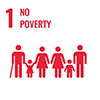
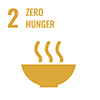




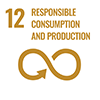

Related journals
This journal is part of our Operations, logistics & quality collection. Explore our Operations, logistics & quality subject area to find out more.
Business Process Management Journal
Business Process Management Journal (BPMJ) examines how a variety of business processes intrinsic to organizational...
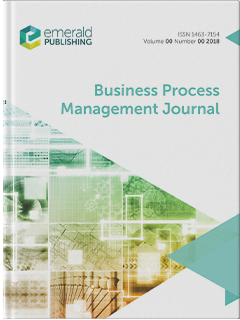
International Journal of Lean Six Sigma
The purpose of International Journal of Lean Six Sigma is to bridge the gap between the theory and practice of Lean Six...
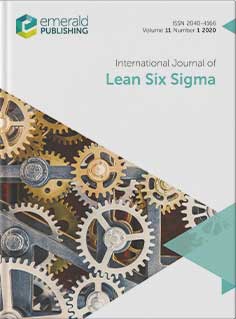
Journal of Humanitarian Logistics and Supply Chain Management
The Journal of Humanitarian Logistics and Supply Chain Management publishes state-of-the-art research, in the field of...
